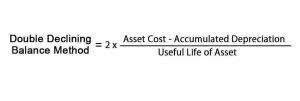

It’s how you bill your customers for the work you do, after all. The more efficient your process for generating and sending invoices, the faster you’ll get paid to cover your expenses. If you are running a small painting business, it is sometimes difficult to keep everything in order and avoid financial bookkeeping mistakes and traps. To organize your painting business properly, you need some bookkeeping knowledge to keep your business moving. A solid bookkeeping strategy helps you manage your taxes suitably, organize your bank accounts, manage your payrolls, etc.
Aging accounts
- For accurate estimates, you need to know how long projects are likely to take, the cost of supplies and labor for each, and other costs like liability insurance.
- In the end, your business is a collection of many different processes—from simple phone greetings to deciding whether to file a mechanics lien for non-payment.
- Operating a small business requires a little knowledge in areas like finance, management, human resources, and marketing on top of industry trends.
- Creating beautiful spaces and working for yourself – it’s no wonder starting a painting and decorating business is so appealing.
There are additional compliance considerations that need to also be factored into running a limited company. Growing a painting business requires that customers know who you are and how to find you. Having a recognizable brand, a strong online presence, and an easy-to-use website are vital for growth. Rather than providing a job, open up a career path for everyone who works in your painting business.


How to Keep Books for a Small Business: 13 Tips to Follow
This may take time to master if you’re just starting out, but tracking everything early helps you build that knowledge quicker. Pay attention to what your competitors are doing in the meantime, and stay reasonable but aggressive. Estimating will likely take trial and error before you have a steady process in place. For example, you need to track your cost of goods sold so you know your gross profit and can adjust your pricing and business goals accordingly. It’s much more challenging to track and understand your expenses when your work expenses are mixed with personal grocery runs and coffee stops. Operating a small business requires a little knowledge in areas like finance, management, human resources, and marketing on top of industry trends.
Understanding Taxes and Regulations
- Join over 1000 business owners who have streamlined their finances and have grown their businesses with Accracy.
- The next year he took the painting to the UK’s Antiques Roadshow, where an expert identified it as a portrait by the acclaimed 17th century Dutch artist Anthony van Dyck.
- A profit and loss statement sums up the costs, expenses and income your painting business gets during specific dates.
- Stay patient, keep learning, and always aim to deliver top-notch service.
- It’s important to keep track of all payment deadlines, including those for taxes, and to ensure all compliance regulations are being met.
Strong employees are attracted to growth opportunities, so provide incentives and promotions for performance to everyone who works for you. Owning a start-up usually means learning how to do the most basic accounting and bookkeeping possible on your own. Of course, the day to day transactions can easily be tracked from bank statements but it’s better to bundle up the details where you can keep up with them immediately. Accounting software like QuickBooks stores and tracks your financial information, which is extremely helpful when you’re doing your bookkeeping for cleaning business taxes. You can also generate reports, search completed transactions, manage payroll, and send billing reminders. Software can help you stay organized and get all the information you need much quicker than recording by hand or on a spreadsheet.


Never stop learning
If you’re not careful, you may end up agreeing to contract terms that delay payments or hurt your business financially. Someone at your company should review every contract — even better, hire a legal team to do it for you. Once you have standard procedures, let your employees follow them. Too many business owners try to micromanage, but this approach is rarely successful. Instead, refine your procedures over time and use ongoing training to empower your employees to handle every situation. As your business grows, you’ll have less direct involvement in the day-to-day operations of the company.
Add descriptors (like account number and account name) as shown in the example below, and voilà! You have a robust bookkeeping for painters Chart of Accounts, something that would impress any accountant. The typical view, however, is to group records by category (sometimes called “codes”).


Partnering with real estate agents, interior designers, and local businesses can lead to referrals and joint marketing efforts. Attending local business events and joining industry associations can also help you connect with potential clients and partners. The allure of transforming spaces and working on your own terms draws many to starting a painting and decorating business. It’s vital to research your competitors, so you can provide a unique or superior service to them, and create a brand that stands out. The majority of your customers are looking for you online, so making sure you stand out there is critical for business success.


- Create onboarding procedures for every position that orients new employees to skills as well as company culture.
- Too many business owners try to fight fires or manage every aspect of operations, but this is a recipe for burnout and stagnation.
- It’s best to never adjust an invoice after it has been settled and never make various copies of a similar receipt.
- Younger, unestablished, but talented artists tend to have more modest prices, perhaps selling pieces for just a few thousand dollars.
- Your bookkeeping system should make logging your income as simple as recording expenses.
- Usually, there are multiple projects going on at a time, involving several field technicians working in different places.
Your plan should clearly outline your business goals, and the practical steps to get there. Asking difficult questions like ‘Who is my target audience’, ‘Who else is operating in the area’ and ‘What makes my business unique’ will help you shape your business’ future. Leadership skills develop over time and by incorporating insights from many sources. Listen to leadership podcasts, read trial balance leadership books, and take leadership classes with the intent to never stop growing as a leader.


Meet Jarred, the heart and soul behind HukyCentre. With a deep affection for furry friends, he pours his passion into every word he writes. His genuine love for dogs shines through in his engaging and informative content. As a dedicated dog enthusiast, Jarred’s goal is to share valuable insights and tips that resonate with fellow dog lovers. Join Jarred on the journey as he celebrates the joy and companionship that dogs bring into our lives.
